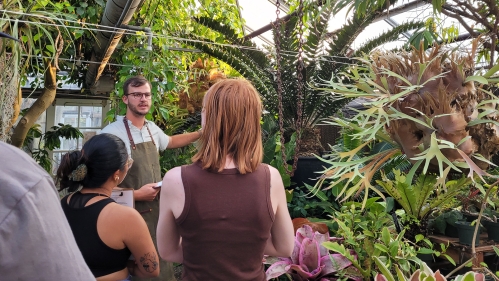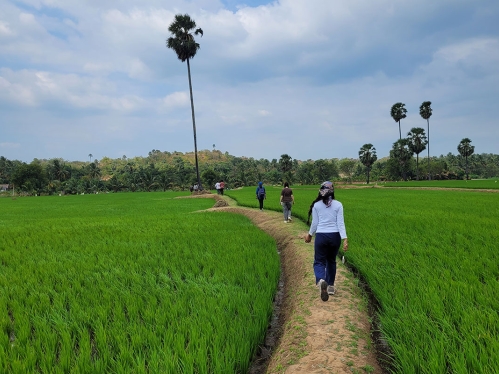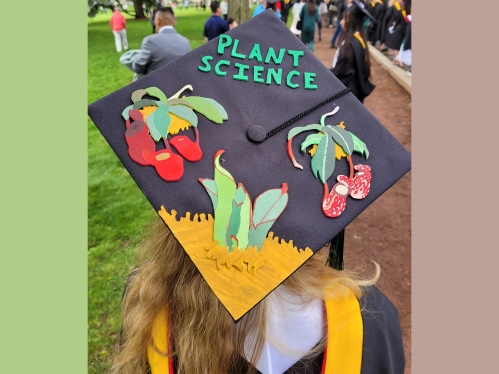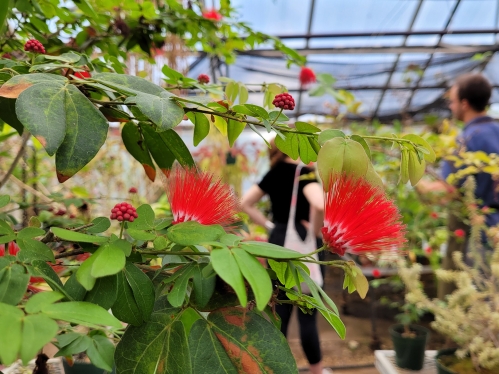
Plant Agriculture and Horticulture

Plant Science Program
Plant Science Major, Minors, and Certificates
The Plant Science Program prepares students for careers and further study in the diverse areas encompassed by Plant Science, where knowledgeable graduates are in high demand. This includes areas such as agriculture, horticulture, turfgrass management, plant breeding, plant pathology, pest management, as well as plant natural products, and cannabis cultivation.
The Plant Science Program offers one major with three options, five minors, and four certificates, offering numerous pathways to personalize your degree and ensure you are highly prepared for the job market.
Learning extends beyond the classroom with opportunities for experiential learning. Students develop crucial skills in our research labs, working farms, and the on-campus research and teaching greenhouses—providing a variety of opportunities for academic excellence, personal development, and career advancement.
Students majoring in Plant Science choose one of the following track options:
Plant Agriculture and Horticulture option: For students intending to pursue careers in industries that involve food and/or plant production, turfgrass management as well as public gardens.
General Research option: For students intending to gain a strong foundation in the life sciences and pursue careers in research and development and/or graduate studies.
Natural Products option: For students interested in the use of plant natural products for human health, as well as modern commercial applications of plant products in various industries (e.g., cannabis, flavors, fragrance, personal care etc.).
Minors: Agroecology, Horticultural Therapy, Medicinal and Economic Botany, Public Garden Management, and Plant Science.
Certificates: Horticultural Therapy, Medicinal and Economic Botany, Plant Biosecurity, and Turfgrass Science.
What Can You Do with a Degree in Plant Science?
With a degree in Plant Science, students can pursue graduate studies, work in industry, government, academia or the allied health professions.

Plant Science Major Options
A major is defined as a primary plan of study toward a bachelor's degree.
Program Minors and Certificates
Interested in a Winter Study Abroad course?
Credits (11:776:490) can count towards your Plant Science Experiential Learning requirement or elective!
I felt very supported! Thank you, Dr. Patel, Harna, and Dr. P, for making such an incredible program and taking care of us <3.
I would definitely recommend this program to a friend! Having an educational background in Indian culture, politics, ecology, agriculture, etc., has been my favorite travel experience thus far. Not just visiting but truly learning about the place you are in is invaluable.
– Tamar Novik

Student Experiences
My experience as a Plant Science student
Students speak about their experiences in each of the three options of the major.
"... I would happily attend Rutgers SEBS Plant Science again due to its sense of community between students/teachers, the pool of phenomenal and educated professors, and the hands-on experience you wouldn't get at other colleges!"
Ryan Woody, Plant Science '25
Plant Agriculture & Horticulture Option

Floriculture Teaching Greenhouse: An Experiential Learning Space

Connect with us on Social Media
Coconut tree farm at Amrita University in Coimbatore, South India, from our 2-week Study Abroad
